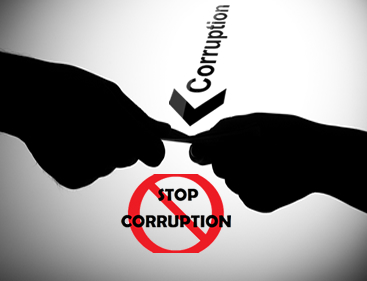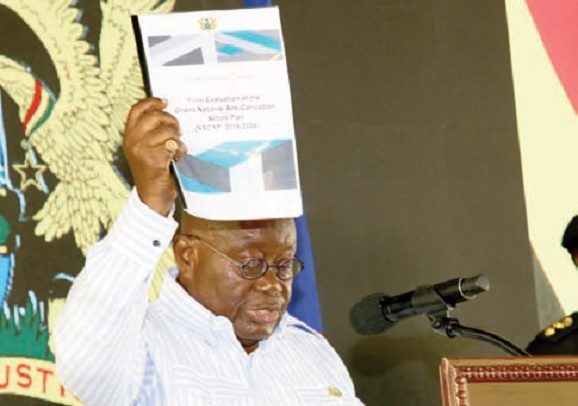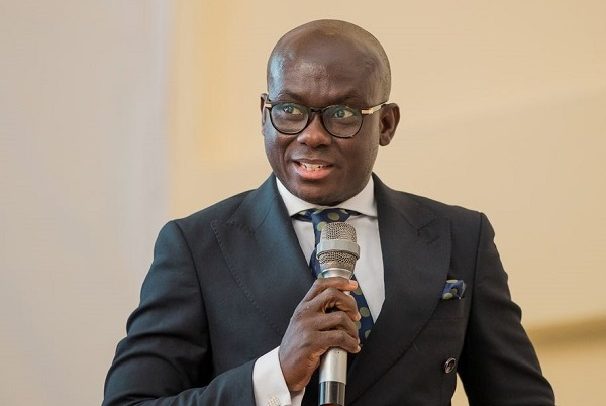
The United Nation Resident Coordinator, Charles Abani, has stressed the importance of addressing corruption as an organised crime with swift action by government.
Given the organised nature of corruption and its cross-border impact, the Resident Coordinator said it should not just be seen as a moral issue – calling on all stakeholders to work together in order to fight the menace.
He made this call at a sensitisation workshop organised by the Commission on Human Rights and Administrative Justice (CHRAJ) in partnership with the High-Level Implementation Committee (HiLAC).
Mr. Abani noted that corruption undermines democracies, siphons trillions of dollars from the most vulnerable and hinders economic progress, warning that evading the rule of law and creating chaotic entanglements only serves to increase the visibility of these crimes.
“Corruption is not just a moral issue; it is a crime that must be addressed by the state. It is often organised and crosses borders, making it necessary for stakeholders to engage with others. Corruption undermines democracies, steals trillions of dollars from those most in need and obstructs economic progress. Averting the rule of law and creating erratic entanglements only serves to increase publicity for these crimes,” The Resident Coordinator said.
The Resident Coordinator highlighted portions of the UN Sustainable Development Goals 2022 report, which describes systemic corruption as a significant obstacle to achieving sustainable development. This, he insisted, needs to be addressed with urgency as it has a tendency to hamper the economy’s growth.
The impact of corruption in Ghana is significant, with reports indicating that there were GH?17.4million bribes in 2021; and the country loses up to GH?5billion through corruption and illicit financial flows, the UN Resident Coordinator stated.
He said this level of corruption has a profound impact on the country: stifling the ease of doing business, acting as a disincentive for foreign direct investment and affecting basic services such as health, education and social protection. It also creates a significant gap in funding needed to achieve the Sustainable Development Goals, he added.
Mr. Abani noted that is important for Ghana to improve accountability and transparency in spending, raise domestic resources and revenue and stymie corruption, in order to achieve sustainable development.
National Anti-Corruption Action Plan
Deputy Commissioner at CHRAJ, Richard Quayson, explained that the National Anti-Corruption Action Plan is a strategic action plan consultatively developed by stakeholders to help fight corruption and promote national development in Ghana. It provides a framework for mobilising public support and resources for anti-corruption activities, and promoting integrity, transparency and accountability in all areas.
Commenting on the need for an evaluation of the plan, Mr. Aban said: “The evaluation of our activities is crucial, as completing all activities means nothing if they do not have the desired effect. It is important to ensure that resources – such as concessional money – have the impact they should in order to lift Ghana out of poverty. This evaluation is critical in our fight against corruption and achieving sustainable development”.
He added that the UN is committed to working with Ghana to combat corruption and promote sustainable development for the benefit of all citizens.
The workshop aimed to observe the 2023 International Anti-Corruption Day (IACD), an annual event celebrated every December 9th to promote united efforts against corruption. It also sought to give an outline of the National Anti-Corruption Action Plan (NACAP) and upcoming assessment, as well as create a strategy for raising awareness, education and advocacy on NACAP and IACD.
The post Address corruption as organised crime with swift action – UN Resident Coordinator appeared first on The Business & Financial Times.
Read Full Story



















Facebook
Twitter
Pinterest
Instagram
Google+
YouTube
LinkedIn
RSS